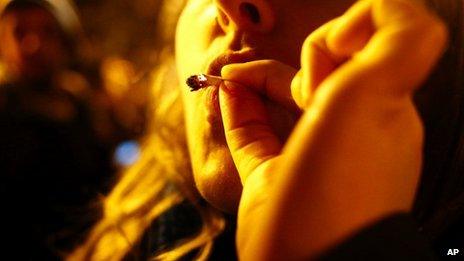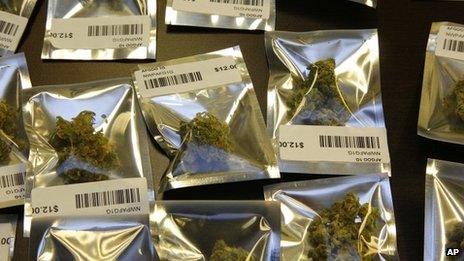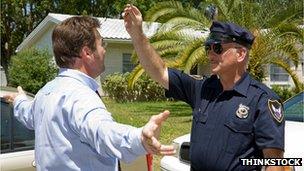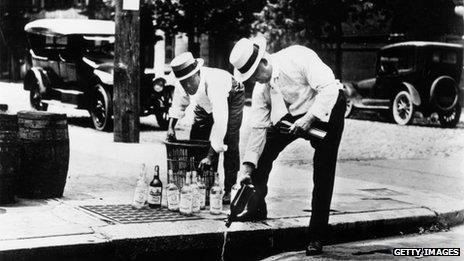Marijuana legalisation in the US: Five burning questions
- Published

Seattle residents celebrated election day with marijuana-fogged street parties
This month, two US states voted to legalise, regulate and tax marijuana. From advertising and marketing to drugged-driving enforcement, we ask what's ahead.
The 6 November votes in Colorado and Washington left a lot of marijuana users happy and a lot of police officers nervous. And they set the two states up for a confrontation with the federal government, as marijuana is still illegal under federal law.
Marijuana is the most widely used illicit drug in the US. Legalisation advocates say the recent votes mark the beginning of the end of the drug's prohibition.
"It's a tipping point for sure," says Sanho Tree, director of the drug policy project at the Institute for Policy Studies.
"If these two states go ahead and legalise recreational use and the sky hasn't fallen, that opens up more political space."
But authorities are wary.
"The Colorado chiefs of police are incredibly concerned with regard to public safety as a whole," says Chief John Jackson of the Greenwood Village police department, and legislative chair of the Colorado Association of Chief of Police.
Nearly 80 years after the US ended the prohibition of alcohol, we aim to answer just a few of the questions raised by the movement.

Fancier packaging will help win new marijuana smokers, advertising experts say
How will retailers and growers market and advertise marijuana?

Police do not need blood tests to catch stoned drivers, says a Colorado police chief
Can your boss still make you take a drug test?
How can police officers prevent drugged driving?

Alcohol use was widespread during US prohibition, even though authorities did their best to rid the country of it
The US once prohibited alcohol. Do these laws portend the nationwide end to marijuana prohibition?
Will people stop distinguishing between "recreational use" and "medical use" of marijuana?
- Published16 November 2012
- Published8 November 2012
- Published6 April 2012
- Published30 March 2012